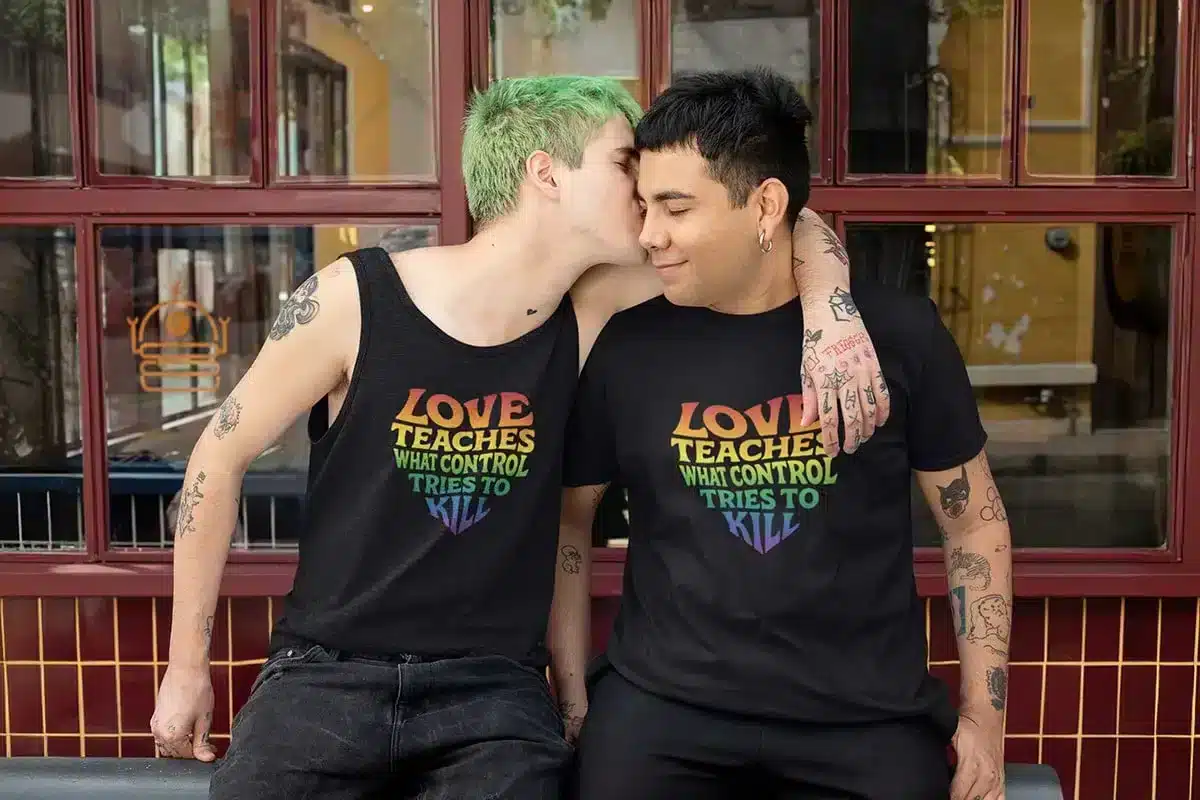This weekend was Pride in Victoria. Flags waving, music pulsing through downtown, colours louder than the crosswalks they danced across.
And as I stood there, just one man in a sea of joy, I felt it hit me again.
This celebration isn’t about politics. It isn’t even about sex.
It’s about freedom.
The freedom to love.
To exist fully, loudly, honestly.
And still, some people are offended by that.
Let me say this as plainly as I can: I will never understand why anyone feels the need to restrict love.
Of all the human emotions, love is the most expansive, the least dangerous, the most healing.
And somehow, it’s also the one most feared by those who try to control it.
If you’re a student of history, and I mean real history, not the sanitized textbook kind, you’d know this rigidity around love is new. Manufactured.
We’ve been lied to about what’s “natural” and what’s not.
Turns out, nature has never asked for your approval either.
Let’s start closer to home.
In many Indigenous cultures, including right here on this land we now call Canada, there has always been space for Two-Spirit people, those who embody both masculine and feminine spirits.
They weren’t rejected. They were revered.
Seen as sacred, balanced, deeply connected to both the seen and unseen.
Colonization didn’t just steal land. It rewrote language.
It scrubbed away identity, fluidity, nuance, until all that was left was a binary box built by fear.
And that’s where so much of this begins. Not with faith, but with fear disguised as righteousness.
Across the globe, love was never one-size-fits-all.
In Ancient Greece, relationships between men, often intellectual, emotional, and romantic, were seen as an essential part of mentorship and life.
Plato, in The Symposium, wrote about love between men as the highest form of spiritual connection.
In pre-colonial Africa, among groups like the Dagara of Burkina Faso, gender was not fixed. Identity was not policed.
Relationships, expressions of love, these were human, not criminal.
In India, ancient texts like the Kama Sutra reference same-sex relationships openly.
The Hijra, a third gender identity, has existed for thousands of years and was even legally recognized in Indian law in recent years.
Islamic history is filled with Sufi poetry that speaks of divine love in deeply intimate, often homoerotic tones.
Not lustful. Sacred.
Buddhism? Doesn’t even centre gender in its core teachings.
The focus is on suffering and compassion.
Love is love. Pain is pain.
Who you share it with isn’t the point.
So where did this all go sideways?
Let’s not pretend: Christianity, especially in its colonial and imperial forms, led the charge in criminalizing and moralizing love.
The 13th century saw same-sex relationships declared heresy.
Victorian England made it illegal, exporting those laws across the globe as part of its colonial mission.
But even within Christianity, the tides are turning.
There are pastors marrying same-sex couples.
Churches proudly flying Pride flags.
Some Christian communities are finally realizing that maybe, just maybe, Jesus wasn’t obsessed with your bedroom.
So no, this post isn’t here to bash faith.
It’s here to bash weaponized faith.
The kind that uses scripture like a sword instead of a balm.
The kind that shames, excludes, condemns, then calls it love.
Now let’s get uncomfortable.
You can handle it.
I’m a white, straight, cisgender man.
I’ve never been shamed for holding hands in public.
I’ve never feared violence for saying “I love you” to someone.
I don’t know that pain. But I’ve listened to people who do.
And I’ve learned that love has never been the problem.
Power has.
The need to control who gets to love.
Who gets to marry.
Who gets to dance, kiss, cry, grieve, celebrate, without needing a goddamn permission slip from society.
Why is it okay for me to say “I love my best friend,” or “I love my sons,” or “I love my Dad”, and nobody blinks?
But let two men say “I love you” and kiss, and suddenly we need a debate?
When did that become controversial?
And why?
I think some people are scared of love because love undoes control.
It blurs lines. It makes you feel.
It asks questions that don’t fit on a ballot or inside a Bible tract.
It’s not neat or binary or easy to market.
But it’s real.
And that makes it powerful. Dangerous, even.
So yeah, maybe some feathers need ruffling.
If you’re more offended by a parade of joy than by policies that erase people’s rights, your compass is broken.
And I say that not with hate, but with grief.
We have so little time on this planet.
Why spend it gatekeeping love?
I don’t want a future where we still need Pride parades because basic human dignity is up for annual debate.
I want a future where Pride is celebration, not survival.
Where coming out isn’t headline news, because there’s no longer any shame to hide from.
One last thing.
This blog is written through the lens of hope.
Of a man who believes we can be better.
Not perfect. Just… better.
It’s not meant to speak for anyone.
It’s meant to speak with everyone.
Because I don’t know what it’s like to walk in your shoes, but I know what it’s like to love.
And I know that the world needs more of it, not less.
So whether your love is loud or quiet
Tender or messy
Same-gender or different-gender
Whether it’s new, old, painful, healing, awkward, or wild,
It’s yours.
And it’s valid.
And if someone tells you otherwise?
Remember this,
Love doesn’t ask for your permission.
It asks for your humanity.











0 Comments